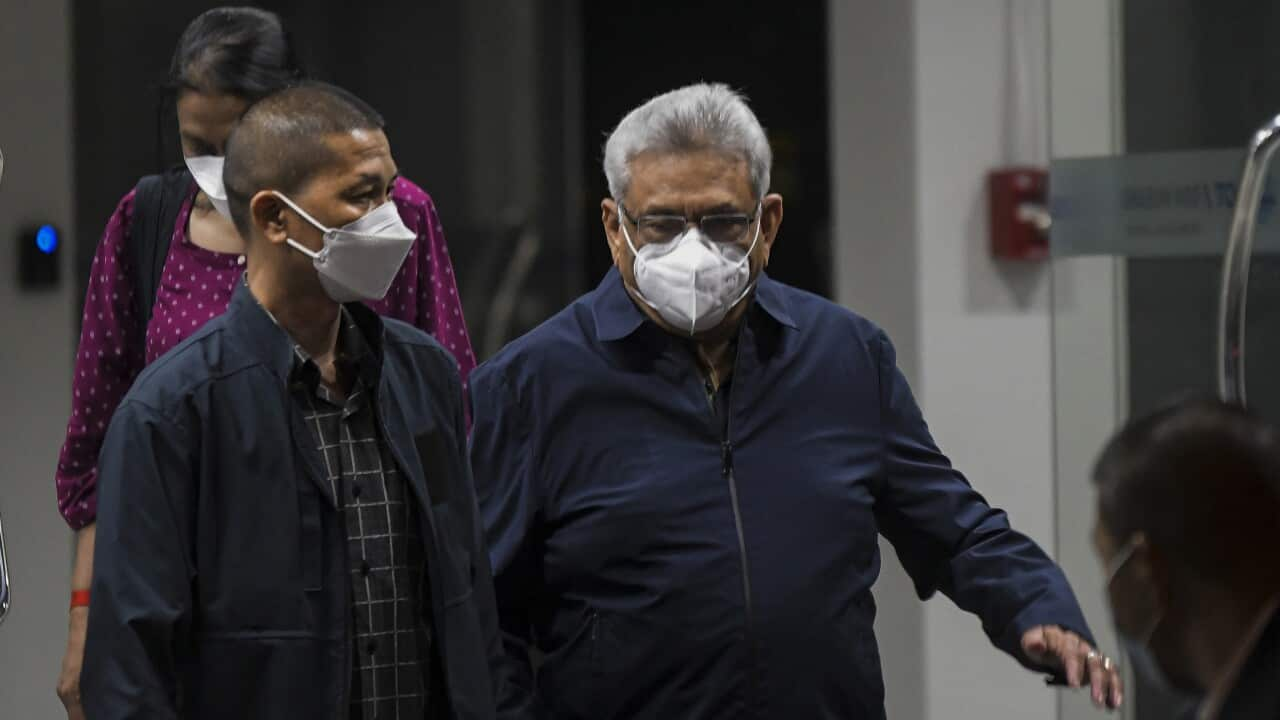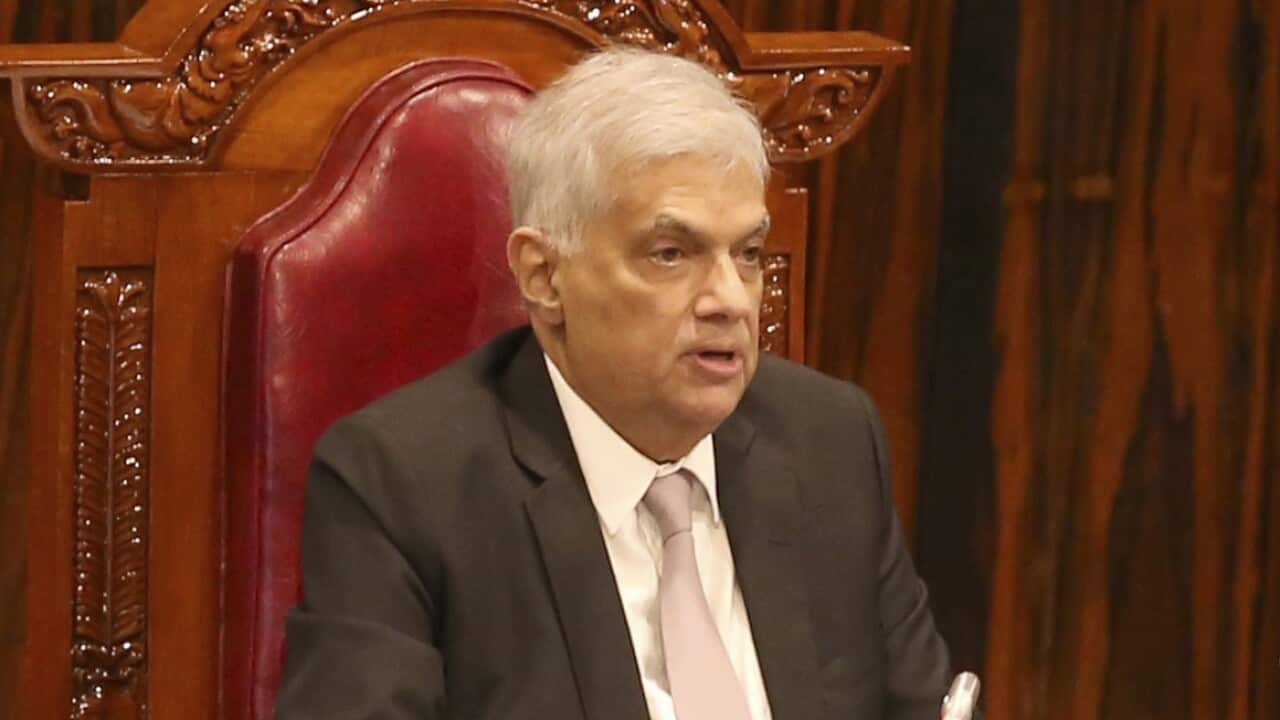Key Points
- Former Sri Lankan president Gotabaya Rajapaksa arrived in Thailand on Thursday to seek temporary shelter.
- Mr Rajapaksa arrived at Bangkok's Don Muang airport on a chartered flight from Singapore.
Former Sri Lankan president Gotabaya Rajapaksa arrived in Thailand on Thursday to seek temporary shelter in a second Southeast Asian country after fleeing his island nation last month amid mass protests.
Mr Rajapaksa arrived at Bangkok's Don Muang airport on a chartered flight from Singapore after the city-state's immigration authority said in a statement on Thursday he had left Singapore.
He is expected to stay temporarily in Thailand after fleeing Sri Lanka for Singapore on 14 July.
Mr Rajapaksa resigned from office shortly afterwards following unprecedented unrest over his government's handling of the worst economic crisis in seven decades and days after thousands of protesters stormed the president's official residence and office.
Thai authorities said the former military officer, who is the first Sri Lankan head of state to quit mid-term, had no intention of seeking political asylum and would only stay temporarily.
"This is a humanitarian issue and there is an agreement that it's a temporary stay," Prime Minister Prayuth Chan-ocha told reporters on Wednesday. Mr Rajapaksa could not participate in any political activities while in Thailand, Mr Prayuth said.
Thailand's Foreign Minister Don Pramudwinai said the Sri Lankan government supported Mr Rajapaksa's trip to Thailand, adding that the former president's diplomatic passport would allow him to stay for 90 days.
Sri Lankans arriving in Singapore normally receive a 30-day visa, but authorities said they had initially given Mr Rajapaksa only two weeks and later extended the visa by another two weeks.
"The Immigration & Checkpoints Authority (ICA) confirms that Mr Gotabaya Rajapaksa left Singapore on 11 August," Singapore's immigration office said in reply to an AFP query.
The Thai foreign ministry, as well as a source in Colombo, had said Wednesday that he was seeking a new safe haven in Thailand.
Mr Rajapaksa fled his nation after tens of thousands of protesters overran his official residence last month, angry about acute shortages of food, fuel and medicine endured by Sri Lanka's 22 million people since late last year.
An international human rights group last month formally asked Singapore to indict Mr Rajapaksa for crimes against humanity during his country's decades-long civil war that ended in 2009.
The South Africa-based International Truth and Justice Project said it had urged Singapore to exercise universal jurisdiction to arrest the former president for grave breaches of international humanitarian law.
Mr Rajapaksa helmed Sri Lanka's defence ministry while his brother Mahinda was president when the country's brutal Tamil separatist conflict came to a bloody end.
Singapore's Attorney-General's Chambers confirmed it had received a complaint from the rights group without giving details.
"His Singapore visa runs out on Thursday," a close associate of Mr Rajapaksa told AFP in Colombo on Wednesday. "He had applied for an extension, but it had not come through as of Wednesday morning."
The source said Mr Rajapaksa planned a short stay in Thailand and would return to Singapore.
The Thai foreign ministry confirmed it had received a request from Colombo for the 73-year-old deposed leader to visit and an assurance that he would not seek political asylum.
"The Thai side received a request for the former president to enter Thailand from the current government of Sri Lanka," ministry spokesman Tanee Sangrat said in a statement.
"The stay is temporary in nature with the aim of onward travel. No political asylum has been sought."
The Rajapaksa confidant told AFP that the former leader was keen to go home as protests against his administration had fizzled out, but his successor Ranil Wickremesinghe had advised him against an early return.
Singapore officials had said he was on a private visit to the city-state and the foreign minister stressed that he was not given any special privileges.
"In general, the Singapore government does not accord privileges, immunity and hospitality to former heads of state or heads of government," Singapore Foreign Minister Vivian Balakrishnan said in a written reply to a question in parliament last week.
"Consequently, former president Gotabaya Rajapaksa was not accorded any privileges, immunity or hospitality."













